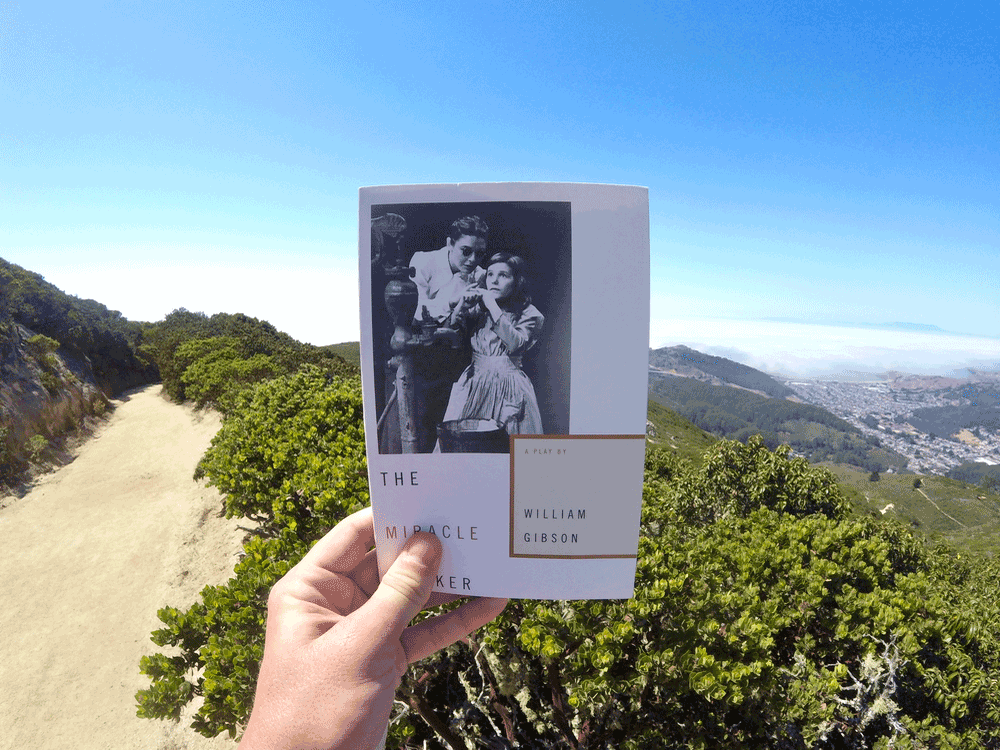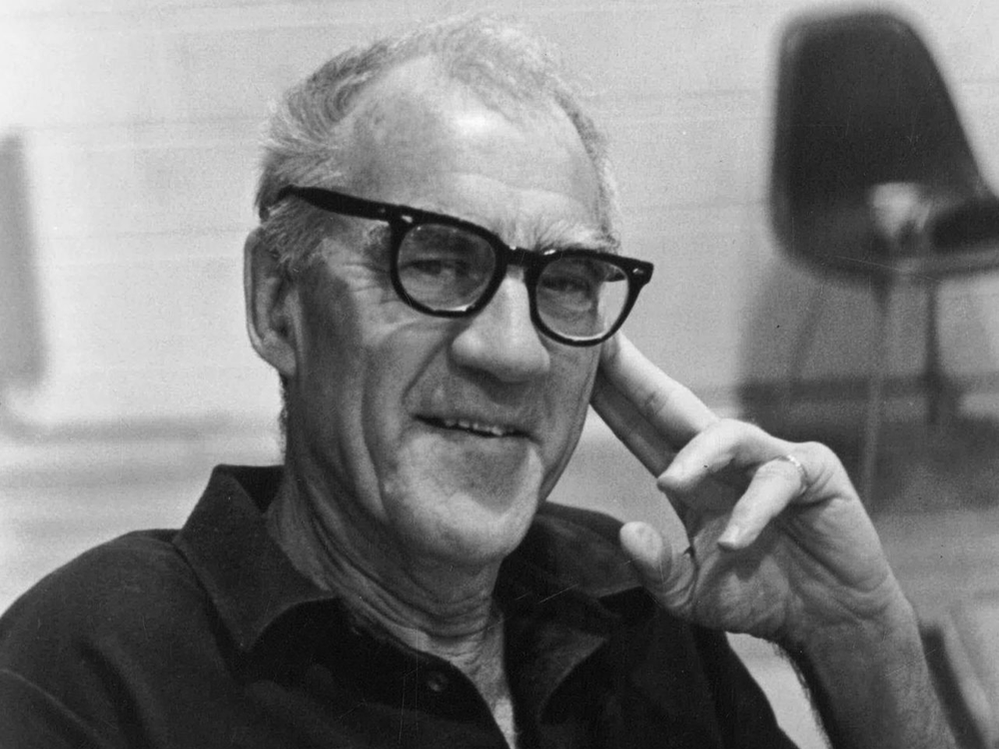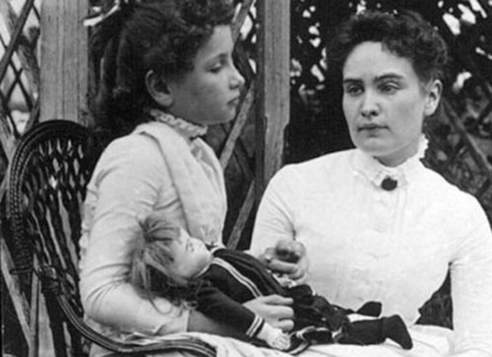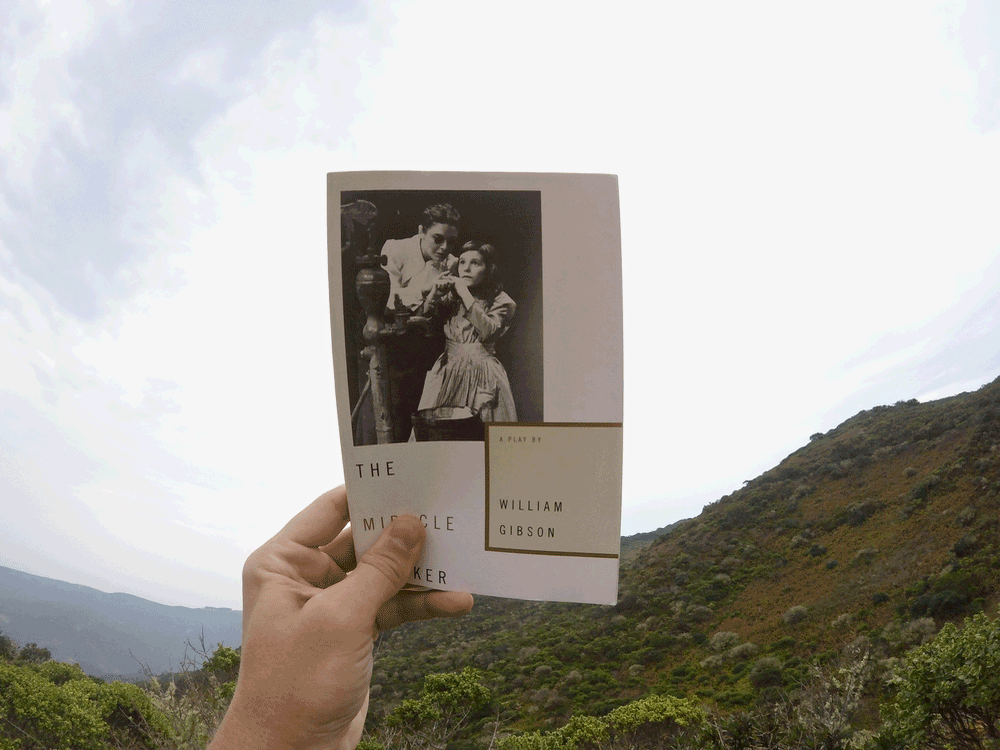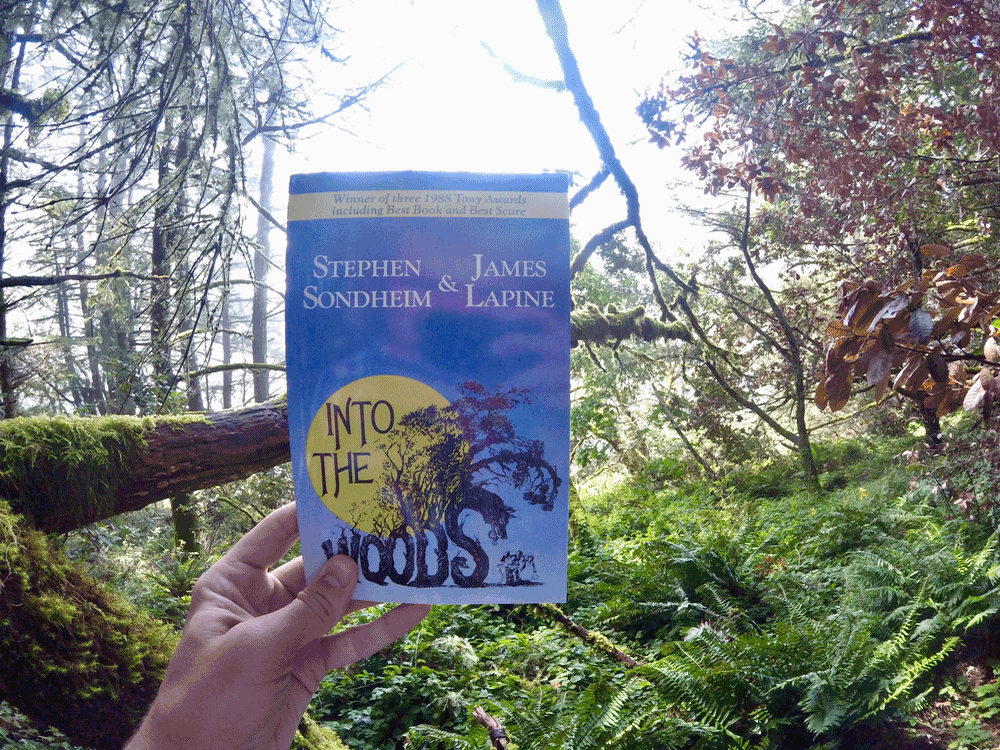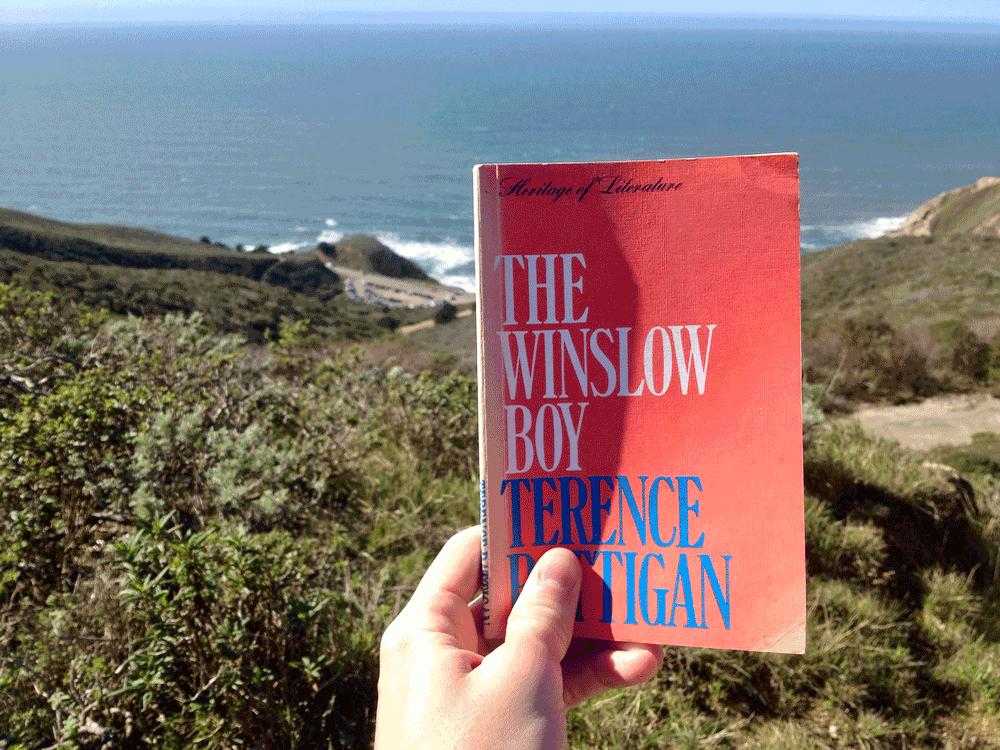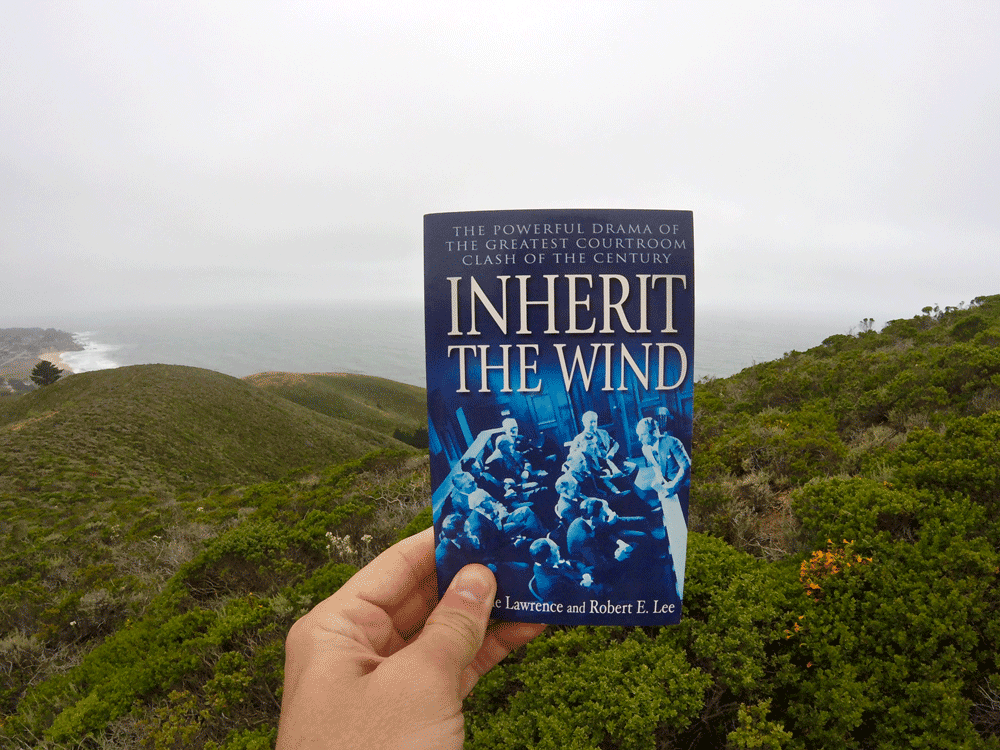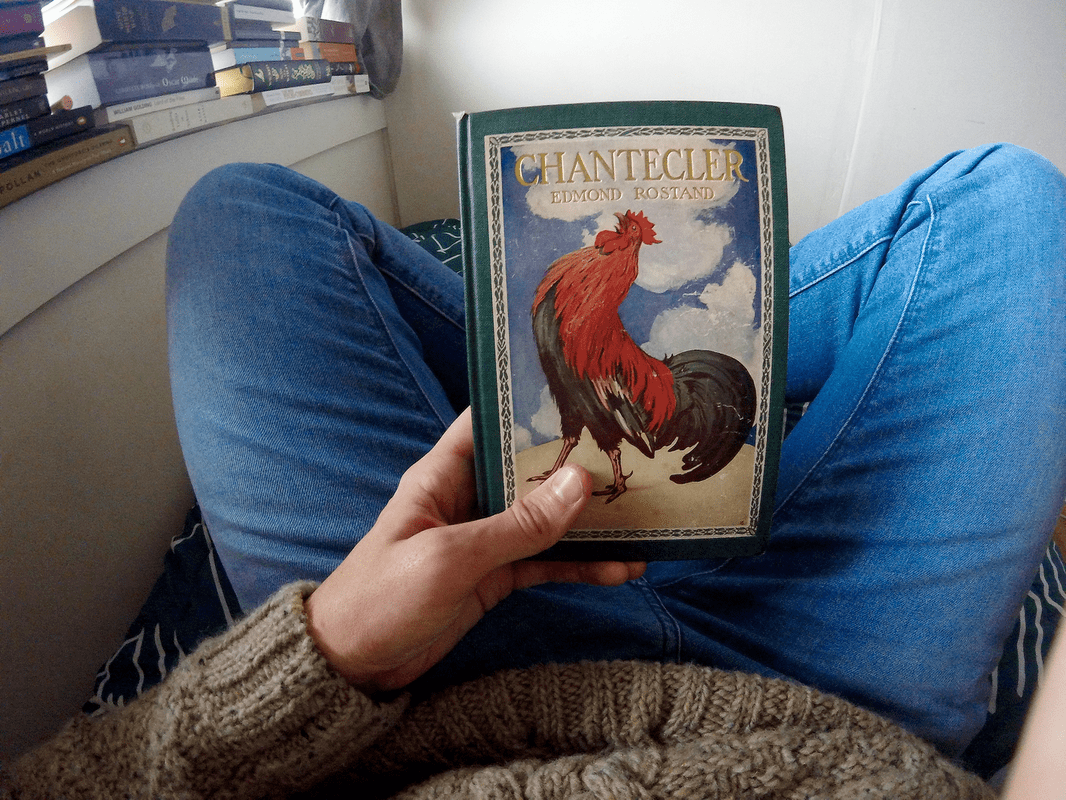| "I wanted to teach you--oh, everything the earth is full of, Helen, everything on it that's ours for a wink and it's gone, and what we are on it, the light we bring to it and leave behind in--words, why you can see five thousands years back in a light of words, everything we feel, think, know, and share, in words..." — Annie Sullivan, The Miracle Worker |
Young Helen Keller is born deaf, blind, and mute. Her inability to communicate with her family leaves the girl constantly frustrated and even violent. Captain Keller see no other alternative than to send his daughter away to an institution, but in one final act of desperation, his wife Kate seeks help from the Perkins Institute, which sends them a "half-blind Yankee schoolgirl," named Annie Sullivan. Annie has just two weeks to awaken Helen's ability to use language, a feat never accomplished in history. If she succeeds, it would be a miracle.
WHY I LOVE IT
From the play's opening, Helen is characterized as a profoundly helpless girl, whose bouts of frustration and violence are tragically reinforced by her well-intentioned family. They cave in time and again to her tantrums with the hopes of momentarily quieting her down and keeping her happy. As Annie accurately tries to explain to Captain and Mrs. Keller in Act II though, "I don't think Helen's worst handicap is deafness or blindness. I think it's your love and pity."
Long before this exchange though, Annie Sullivan is drawn as a fiercely determined woman whose willpower to communicate with Helen can match not just Captain Keller's doubts, but Helen's handicaps and ferocious stubbornness. Whether she'll succeed or not will great depend on Helen and her family changing. Not Annie. The Miracle Worker, is a powerful and dramatic story. I loved the stage direction notes in it, which feature long scenes with Annie working with Helen to overcome setbacks and break through. [JG]
Long before this exchange though, Annie Sullivan is drawn as a fiercely determined woman whose willpower to communicate with Helen can match not just Captain Keller's doubts, but Helen's handicaps and ferocious stubbornness. Whether she'll succeed or not will great depend on Helen and her family changing. Not Annie. The Miracle Worker, is a powerful and dramatic story. I loved the stage direction notes in it, which feature long scenes with Annie working with Helen to overcome setbacks and break through. [JG]
ABOUT THE AUTHOR
| William Gibson (1914-2008) wrote poetry, dramas, scripts for TV, and one novel. In addition to his Tony Award-winning The Miracle Worker, his plays include Two for the Seesaw, A Cry of Players, Golda, The Butterfingers Angel, Goodly Creatures, and Handy Dandy. I plan on reading all of them, but first will tackle his book A Season in Heaven that explores the creative process and Gibson's philosophical views. |
Annie Sullivan with Helen Keller in Cape Cod, 1888
FAVORITE QUOTES
5. "At another time she asked, 'What is a soul?' 'No one knows' I replied; 'but we know it is not the body, and it is that part of us which things and loves and hopes.' ... [and] is invisible. ... 'But if I write what my soul thinks,' she said, 'then it will be visible, and the words will be its body.'" — Annie Sullivan, 1891
4. ANAGNOS: Deaf, blind, mute...she is like a little safe, locked, that no one can enter. Perhaps there is a treasure inside.
3. ANNIE: Language is to the mind more than light is to the eye.
2. ANNIE: Mrs. Keller, I don't think Helen's worst handicap is deafness or blindness. I think it's your love and pity.
1.
JAMES: Sooner or later we all give up, don't we?
ANNIE: Maybe you all do. It's my idea of the original sin.
JAMES: What is?
ANNIE: Giving up.
4. ANAGNOS: Deaf, blind, mute...she is like a little safe, locked, that no one can enter. Perhaps there is a treasure inside.
3. ANNIE: Language is to the mind more than light is to the eye.
2. ANNIE: Mrs. Keller, I don't think Helen's worst handicap is deafness or blindness. I think it's your love and pity.
1.
JAMES: Sooner or later we all give up, don't we?
ANNIE: Maybe you all do. It's my idea of the original sin.
JAMES: What is?
ANNIE: Giving up.
"Teacher."
— Helen, spelling it back to Annie
YOU MAY ALSO LIKE
| INTO THE WOODS Stephen Sondheim & James Lapine | CHANTECLER Edmond Rostand |

